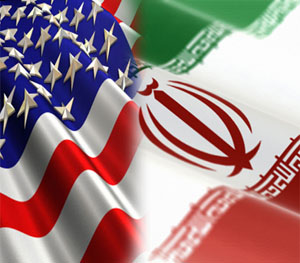 Opponents of chuck Hagel's nomination to be the U.S.'s next Secretary of Defense claim he is outside the mainstream in his views on Israel. Hagel's actual policy positions don't reflect that. On many issues, he sounds a lot like Israeli President Shimon Peres, who lamented in an interview published Jan. 9 by the New York Times that Israel was not doing enough to make peace. In any event, Hagel's views on Israel are irrelevant, since policy on that issue will be set by the White House and Congress. Where Hagel does appear out of the mainstream is on Iran, which is a good thing because Washington desperately needs fresh thinking on the topic.
Opponents of chuck Hagel's nomination to be the U.S.'s next Secretary of Defense claim he is outside the mainstream in his views on Israel. Hagel's actual policy positions don't reflect that. On many issues, he sounds a lot like Israeli President Shimon Peres, who lamented in an interview published Jan. 9 by the New York Times that Israel was not doing enough to make peace. In any event, Hagel's views on Israel are irrelevant, since policy on that issue will be set by the White House and Congress. Where Hagel does appear out of the mainstream is on Iran, which is a good thing because Washington desperately needs fresh thinking on the topic.In 2013, perhaps in the next few months, President Obama will face a crisis on Iran. He has categorically ruled out living with a nuclear-armed Iran under a Cold War--style policy of containment. That means either Iran will capitulate to U.S. demands or the U.S. will go to war with Iran. Since the first option is extremely unlikely and the second extremely unattractive, the Obama Administration needs to find a negotiated solution. That means using sticks and carrots--or what is often called coercive diplomacy--to get a deal that Washington and Tehran can live with.
In a superb essay in the current issue of Foreign Affairs, Columbia University scholar Robert Jervis points out that the U.S.'s coercive diplomacy has almost never worked. In Panama (1989), Iraq (1990), Serbia (1998), Afghanistan (2001) and Iraq (again, in 2003), Washington used sanctions, pressure and the threat of force to try to get leaders to change course. None did, and Washington had to make good on its threat and go to war. With North Korea, the threats also failed, but in this case, Washington has chosen to abjure military action and contain the regime. If the Administration wants to succeed this time, Jervis argues, "it will need to up its game and take an unusually smart and bold approach to negotiations."
Making coercive diplomacy work requires a mixture of threats and promises. In Iran's case, the Administration has made threats plenty of times with clarity and credibility. Jervis notes that the threat of force against Iran would be far more credible if the government of Israel were to stop publicly doubting American resolve and instead signal that it believes that the U.S. is serious. Peres clearly agrees because he states unequivocally in the Times interview that if coercive diplomacy does not work, "President Obama will use military power against Iran. I am sure of it."
While the sticks have been handled shrewdly, the carrots have not. The U.S. has been unable to define for itself or for the world what would be an acceptable deal and, most important, what it is willing to do if Tehran agrees to such a deal. Would sanctions be lifted? Which ones? Would the U.S. stop its efforts to overthrow the regime? Would it be willing to discuss normalization of relations with Iran? In another excellent essay, this one in the Cairo Review of Global Affairs, former State Department official Reza Marashi details Washington's mistakes and missed opportunities in negotiating with Iran. He points out, for example, that on two occasions when the Iranians essentially agreed to American parameters, Washington moved the goal posts.
By Time
The Iran Project is not responsible for the content of quoted articles.










